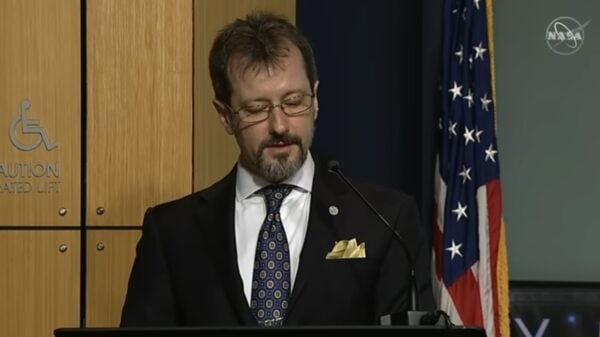[ad_1]
TikTok masquerades as a user-friendly social media app with humorous dances and goofy filters. Every TikTok consumer appears to be like to be having a swell time. And with so many scary issues happening world wide, who wouldn’t need to be a part of these hoots? At least one billion customers worldwide do and have signed up for an account
However, TikTok is hardly the pleasing distraction it purports to be. Instead, the platform is a lure from which customers could by no means escape.
This week, the New York Times engaged in journalism and met with a whistleblower, who gave the publication a doc referred to as “TikTok Algo 101,” which reveals a not-so-top-secret operation that takes benefit of customers’ emotional instabilities for revenue.
The doc exhibits that TikTok places all of its assets into what it calls the “ultimate goal” of infiltrating folks’s minds to find out consumer worth, long-term consumer worth, creator worth, and platform worth.
In essence, TikTok has constructed a enterprise mannequin round how a lot time a consumer spends on its platforms and the way often she or he returns. Based on its findings, TikTok stooges then cease at nothing to make every consumer hooked on its service.
Once TikTok finds a consumer’s particular person weaknesses — equivalent to, per a report, #breakup, #unhappy, #melancholy — it latches on to construct a custom-made feed to use that particular person’s feelings.
So if in case you have a TikTok account, know that TikTok’s algorithm finds your vulnerabilities after which exploits them in order that you’ll maintain coming again for extra. In doing so, it strips away your independence since you relinquish management over your satisfaction to the mercy of likes, feedback, and playtimes with out realizing it.
“This system means that watch time is key. The algorithm tries to get people addicted rather than giving them what they really want,” says Guillaume Chaslot, the founding father of Algo Transparency.
On common, TikTok learns the pursuits of 1 account consumer in below two hours. According to the doc, TikTok content material managers have entry not solely to publicly shared content material however to the content material that buddies privately add to the platform to share with one another, making TikTok’s algorithm extra highly effective than the applications that different social media apps use. Moreover, TikTok excludes the end-to-end encryption that apps like WhatsApp provide. In a bunch of filth, TikTok stands because the filthiest.
TikTok bombards customers with content material that it is aware of they possible received’t be capable of ignore. And like all satanic blueprints, TikTok particularly feeds on the weak: 25% of TikTok’s energetic customers within the U.S. are folks aged 10-19:

“I think it’s a crazy idea to let TikTok’s algorithm steer the life of our kids,” Chaslot says.
“Each video a child watches, TikTok beneficial properties a chunk of knowledge on him. In a couple of hours, the algorithm can detect his musical tastes, his bodily attraction, if he’s depressed, if he could be into medication, and plenty of different delicate info.
“There’s a high risk that some of this information will be used against him. It could potentially be used to micro-target him or make him more addicted to the platform.”
TikTok engineers constructed an algorithm that manipulates weak folks — lots of them minors — after which emotionally abuses them. And that’s precisely what’s occurring right here: emotional abuse.
If TikTok had been an individual, we’d hope to quickly discover that manipulative coward within the pavement someplace. Unfortunately, no such scapegoat exists. No single particular person controls TikTok’s feed. Instead, a computerized system geared to outsmart human beings does.
You should marvel how anybody who grew up on-line can maintain their sanity. Maybe they’ll’t.
It’s no marvel while you exit in public — and, hopefully, you continue to do — that youngsters both have their heads buried of their telephones or have a depressing look on their faces. There is certainly a correlation between the 2. A scientific algorithm has baited younger folks with guarantees of happiness solely to amplify their distress for monetization.
Social media dependancy is simply as crippling as some other kind of dependancy. In some methods, it’s truly extra ominous. There are warning indicators and help teams for different addictions equivalent to alcohol, medication and playing. However, only a few folks ever point out social media dependancy. In reality, friends and idols usually encourage folks to affix them on social platforms like TikTok and look down on those that refuse. As a society, we’re overtly selling and normalizing poison.
What’s occurring on TikTok is severe, however nobody is doing something about it. Why is that? Do the fitting folks not know? Or have tech corporations constructed algorithms so indestructible that nobody can do something to cease them? I concern it’s the latter and that we’ll proceed to feed these ghouls with our time and our minds.
[ad_2]
Source hyperlink














